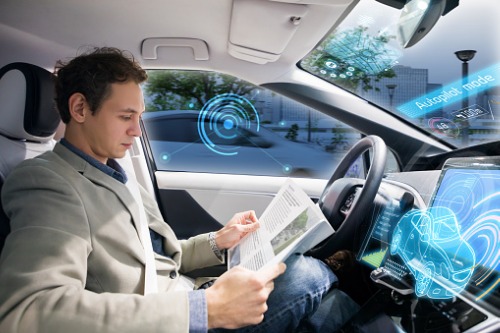

Full vehicle automation should mean zero liability for drivers. That is the main point being put forward by the Association of British Insurers (ABI) and Thatcham Research as rules and standards are being developed ahead of the automated driving future.
“There will come a point when the drivers of today are effectively passengers in a vehicle driving itself, and at that stage we want motorists to be reassured they won’t be held liable for an error made by a vehicle or a piece of on-board technology,” asserted Laurenz Gerger, ABI’s policy adviser for motor insurance.
“Standards being set internationally, and the way they are adopted in the UK, need to include strict requirements to ensure vehicles aren’t rushed onto the roads under the badge of autonomy when in fact they may still need human intervention at short notice.”
In a joint release, the trade body and Thatcham Research stressed that car manufacturers must not be allowed to have their vehicles categorised as autonomous when a driver might still have to take back control in case of emergency. Bottomline, full automation should see the technology 100% in charge of driving – able to manage every possible road condition or scenario.
“The future of motoring is extremely exciting and approaching fast,” said Thatcham Research’s insurance research director Matthew Avery. “The life-saving potential of fully automated vehicles is clear, but it is important their introduction on to the UK’s roads is handled carefully to guard against serious accidents which could potentially undermine public trust in this new technology.
“This also means reassuring the public that when the time comes, they will not find themselves being held liable for the actions of a truly autonomous vehicle.”
The ABI, in partnership with Thatcham Research, has submitted its views to the Law Commission. It is their belief that aside from a system to categorise vehicles, there should also be easily accessible and comparable data that will let insurers and the emergency services know whether a person or the technology was in control at the time of an incident.
Gerger added: “Fully autonomous vehicles have the potential to radically improve road safety and insurers are heavily involved in the trials taking place around the country.
“A safe transition to automated driving requires clear definitions to help consumers understand their own and their vehicles’ responsibilities, and data must be available in the event of an accident to help insurers and the authorities understand what went wrong.”
